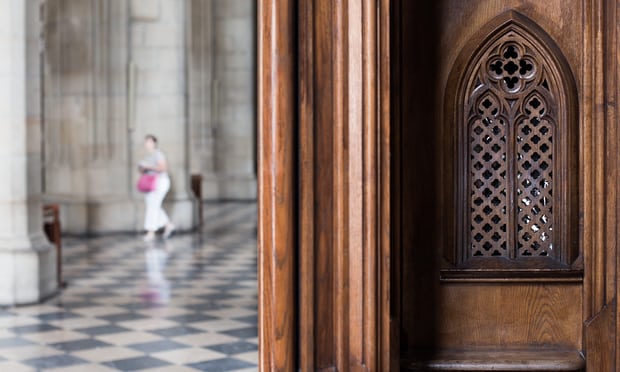End Secrecy of Confessionals "to Protect Catholic Children"
By Owen Bowcott
Mandatory reporting of sexual misconduct and abolishing the secrecy of the priest’s confessional box are needed to protect children at Catholic schools, the national inquiry into child sexual abuse has been told. At the opening of a three-week hearing into Benedictine schools, lawyers representing scores of victims have called for fundamental changes to the way the church handles complaints and deals with suspected offenders. Richard Scorer, of the law firm Slater and Gordon, who represents 27 core participants at the Independent Inquiry into Child Sexual Abuse (IICSA), said the failure to make reporting suspected abuse a crime had allowed clerics to evade responsibility. “A mandatory reporting law would have changed their behaviour,” Scorer told the hearing. “At Downside Abbey, abuse was discovered but not reported and abusers were left to free to abuse again and great harm was done to victims. “The Catholic church purports to be a moral beacon for others around it yet these clerical sex abuse cases profoundly undermine it … Why has the temptation to cover up abuse been particularly acute in organisations forming part of the Roman Catholic church?” David Enright, a solicitor at Howe and Co who represents more than a dozen former schoolboys from a Catholic Comboni missionary school – run by an order founded in Italy in the 1860s – said there were more than a million children attending Catholic-run educational institutions in the UK. One former abuser at the Comboni school had not been punished but moved elsewhere after complaints and eventually became a Scouts commissioner in Uganda, Enright revealed. Removing the privileges of priestly confession would help change attitudes, he suggested. “Matters revealed in confession, including child abuse, cannot be used in governance,” Enright said. “One can’t think of a more serious obstacle embedded in the law of the Catholic church to achieving child protection. “The Catholic church is so opaque, so disparate, so full of separate bodies who are not subject to any authority that it is difficult to see how reform can be made to provide good governance and introduce acceptable standards of child protection.” The latest strand of the IICSA’s inquiry is focusing on two Benedictine abbeys and their associated schools, Downside and Ampleforth. Introducing the investigation, Riel Karmy-Jones QC, counsel to the inquiry, said past allegations and convictions at the two schools had exposed a wide range of misconduct. She said these included excessive physical chastisement, sometimes apparently for sexual gratification; voyeuristic beatings where children had been made to strip and to bend over so as to expose their naked bottoms; grooming; fondling of genitalia; buggery and rape. Karmy-Jones said the inquiry was likely to hear allegations of complaints being ignored, pressure being applied to families not to report abuse, the police not being informed and known abusers being moved to other locations to avoid scandal. In other cases, she said, abusers were permitted to stay in their posts and allowed to have contact with children and other vulnerable individuals. “It may be that there is some acceptance of failings, but reliance will be placed on changes that have been made over the years,” Karmy-Jones said. “But as you will hear, concerns remain and you are likely to hear evidence that suggests safeguarding problems are still ongoing, with the inevitable result that children may remain at risk.” Representatives of both abbeys made opening statements expressing regret for past abuse. Matthias Kelly QC, for Ampleforth, offered “sincere and heartfelt apologies”. He said: “We wish to apologise for the hurt, distress and damage done to those who suffered abuse when in our care. We will do everything we can to ensure that there is no repetition. “Before 2005 [when a new abbot took over], there were failings, omissions, a lack of transparency and misguided loyalty [to the abbey]. Ampleforth is committed to learning from the past.” Kate Gallafent QC, for the English Benedictine Congregation, said that as the number of children abused had become apparent, there had been a sense of shame and “intense sadness at the anguish caused to so many people”.
|
.
Any original material on these pages is copyright © BishopAccountability.org 2004. Reproduce freely with attribution.
